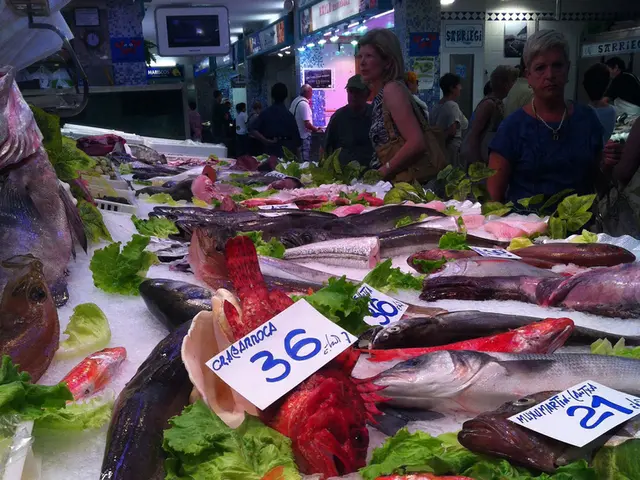Criticizing Kretschmer's Remarks Regarding Nord Stream as Flippant or Impudent - Criticizing Kretschmer's Nord Stream remarks labeled as "foolish"
Saxony's Minister-President Michael Kretschmer has stirred debate with his proposals to re-engage with Russia through the Nord Stream gas pipelines. During consultations in Berlin, Green Party leader Felix Banaszak sharply criticized Kretschmer's stance, describing it as "brazen" and against German and European independence.
Kretschmer, a member of Germany's Christian Democratic Union, has advocated using the two pipelines to initiate dialogue with Russia. In an interview with "Zeit Online," he suggested that 20% of Germany's gas demand could be met once again through imports from Russia, seeing Nord Stream as a potential opening for dialogue.
However, this position contradicts that of Federal Chancellor and CDU party leader Friedrich Merz, who supports the EU Commission's plan to prevent the reactivation of the pipelines as part of a new sanctions package against Russia in response to Russia's refusal to agree to a ceasefire with Ukraine.
Banaszak criticized Kretschmer's proposal as harmful to German and European independence and resilience, branding it a "wrong signal." He urged Merz to ensure that announced actions are included in the planned next sanctions package against Russia. Banaszak also emphasized the need for the rapid initiation of confiscating Russian assets and transferring them to Ukraine.
Sahra Wagenknecht, chairwoman of the Sarah Wagenknecht Union Party, expressed support for Kretschmer's stance, viewing it as aligned with Germany's economic interests. She recommended Kretschmer initiate a discussion in the German Bundesrat (federal council) to reopen Nord Stream, arguing that cheaper energy would help prevent economic decline and deindustrialization.
Nord Stream, consisting of two gas pipelines with four strings each, runs from Russia through the Baltic Sea to Germany. Gas flowed through Nord Stream 1 for over ten years before the Russian side suspended supplies mid-2022 following the invasion of Ukraine, while Nord Stream 2 was completed but never put into operation. In September 2022, three of the four strings were damaged by an explosion.
- The Commission is proposing to extend the period of validity of the agreement to cover the damaged strings of the Nord Stream pipelines.
- Migration patterns in Europe have been influenced by the ongoing war-and-conflicts in Ukraine and the subsequent economic instability.
- Policy-and-legislation discussions regarding the energy sector are intensifying due to the issues surrounding the Nord Stream pipelines.
- Car-accidents reports have been overshadowed by the political debates revolving around gas pipelines and international relations.
- The political landscape of Germany is divided over the issue of re-engaging with Russia through the Nord Stream pipelines.
- General-news coverage has been dominated by the disputes surrounding the proposed reopening of the Nord Stream pipelines.
- Crime-and-justice offices in Germany are experiencing an unusual lull due to the public's increased interest in political events.
- Accidents involving fires have seen a decrease as people focus more on the Nord Stream pipelines situation.
- Sports leagues such as football, baseball, hockey, golf, and basketball are eagerly awaiting the resolution of the Nord Stream pipeline controversy.
- Sports-betting platforms are reporting lower betting volumes due to the distracting political climate surrounding the Europe-Russia relations.
- European leagues, including premier-league, nba, nhl, mlb, and grand-prix, are closely monitoring the developments regarding the Nord Stream pipelines.
- Weather forecasting agencies are working overtime to maintain accurate predictions amidst the heightened interest in international news.
- Tennis grand slams have become a popular distraction from the turbulent Nord Stream pipeline debates.
- Sports-analysis shows provide insights into the influence of the Nord Stream pipeline issue on public opinion and political decisions.
- Weather reports have become secondary concerns for the majority of the population engaged in the ongoing discussions about the Nord Stream pipelines and their implications for Germany, Europe, and Russia.








